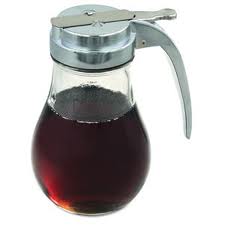Fresh Del Monte is ending its lawsuit against Oregon health officials who linked a salmonella outbreak to its Guatemalan cantaloupe.
In August, Coral Gables, Fla.-based Del Monte Fresh Produce NA Inc. said it would sue the Oregon Health Authority’s Public Health Division and the agency’s top scientist over how it handled the investigation of the February and March 2011 outbreak that sickened 20 people in the western U.S. and Pennsylvania and Maryland.
Lynne Terry of The Oregonian reported yesterday that Del Monte Fresh Produce said in a letter e-mailed to the state earlier this month that it would not act on its notice to sue William Keene  and Oregon Public Health.
and Oregon Public Health.
"Obviously, it’s a relief for us that that’s withdrawn so now we can focus on the job we’re supposed to do which is to protect the public’s health," said Dr. Katrina Hedberg, state epidemiologist. The tort claim filed last August had gobbled up time of state scientists and lawyers dealing with it, she said.
The claim was unprecedented. State epidemiologists investigate dozens of foodborne illness outbreaks every year and name the culprits to prevent more people from getting sick. No other company has ever filed a suit or threatened to sue Oregon over one of those investigations.
"There have been lots of outbreaks," Hedberg said. "Why some companies choose to work with public health and others want to fight it — I can’t answer that."
Del Monte Fresh Produce wouldn’t either. A spokesman said the company "does not comment on ongoing or closed investigations."
The company’s letter said the withdrawal marked "a show of good faith" in its discussions with Oregon Public Health over food safety. It asked for another meeting with Oregon’s top food safety detectives.
The state agreed to a meeting in Portland.
"I’m not sure why they want it," Hedberg said. "We work with businesses and companies but that does not preclude us from notifying the general public if we find a food item that’s been responsible for an outbreak or cluster of illnesses."
The saga dates to January 2011 when people started getting sick. In March, the company recalled nearly 60,000 whole cantaloupes imported from its facility in Guatemala. The recall notice, published on the Food and Drug Administration website, said the melons could be contaminated with Salmonella Panama, the strain involved in the outbreak.
In July, the FDA imposed an import alert, effectively banning the sale of the Guatemalan melons until the company demonstrated they were safe. Located in Coral Gables, Fla., Del Monte Fresh Produce is a major importer of cantaloupe. A third of its supply comes from Guatemala.
The company, which is not part of the Del Monte Foods conglomerate, responded to the alert by filing suit against the FDA. Then in August, it filed the tort claim against Keene and Oregon Public Health along with a separate ethics complaint against Keene.
The documents said Keene conducted a shoddy investigation. They said he never found salmonella in its cantaloupes but named the company anyway. Del Monte Fresh Produce also blamed Keene for the recall, saying he pushed the FDA to take action.
But Keene was not the only epidemiologist who concluded that Del Monte Fresh Produce was to blame in that outbreak. His peers in Washington state reached the same conclusion.
In September, the FDA lifted its import alert and Oregon’s Government Ethics Commission (1).jpg) dismissed the ethics claim against Keene.
dismissed the ethics claim against Keene.
At the time, Kirk Smith, epidemiology supervisor for the Minnesota Department of Health, told the Washington Post it’s rare for scientists investigating foodborne illness outbreaks to test the exact food suspected of carrying pathogens. By the time symptoms occur and a foodborne illness is reported and confirmed, the product in question has likely been consumed or has exceeded its shelf-life and been thrown away.
Instead, scientists, like detectives, interview victims, collect data, analyze patterns and match food “fingerprints” to determine the likely source of an outbreak.
“The majority of outbreaks, we don’t have the food to test,” Smith said. “Laboratory confirmation of the food should never be a requisite to implicating a food item as the vehicle of an outbreak.
Epidemiology is actually a much faster and more powerful tool than is laboratory confirmation.”
 at Villawood, in Sydney’s west.
at Villawood, in Sydney’s west.
.jpeg) The lawsuit alleges Castelli’s “illness and death were a result of the bakery products he ingested which were contaminated with salmonella.”
The lawsuit alleges Castelli’s “illness and death were a result of the bakery products he ingested which were contaminated with salmonella.” and Oregon Public Health.
and Oregon Public Health.(1).jpg) dismissed the ethics claim against Keene.
dismissed the ethics claim against Keene.
.jpg) drains. The entire area was closed for complete cleaning as soon as the problem was discovered, and was cleaned and sanitized again the next day by a professional cleaning service.
drains. The entire area was closed for complete cleaning as soon as the problem was discovered, and was cleaned and sanitized again the next day by a professional cleaning service. .jpg) broken. After local management decided to just lock the bathroom doors and cover the mess with air spray, she reported the incident to corporate management.
broken. After local management decided to just lock the bathroom doors and cover the mess with air spray, she reported the incident to corporate management..jpg) was harvested and shipped. This proved to be important in tracking the product to customers in our database because we had records of where each pallet came from and where Jensen Farms shipped it.
was harvested and shipped. This proved to be important in tracking the product to customers in our database because we had records of where each pallet came from and where Jensen Farms shipped it..jpg) saw or touched the product were drawn into litigation based on association or something other than actual wrong-doing. It is an unfortunate reality.
saw or touched the product were drawn into litigation based on association or something other than actual wrong-doing. It is an unfortunate reality. exposed to the implicated food and made ill. There needs to be a balance because some epidemiologists may be overly aggressive with insufficient information or pulling the trigger too fast. This lawsuit could do more harm than good but it might make epidemiologists more cognizant of the fact that they’re responsible for not only public health, but economic consequences.”
exposed to the implicated food and made ill. There needs to be a balance because some epidemiologists may be overly aggressive with insufficient information or pulling the trigger too fast. This lawsuit could do more harm than good but it might make epidemiologists more cognizant of the fact that they’re responsible for not only public health, but economic consequences.”.jpg) have some worries of legal threats, that does not drive our investigation, but causes us to do a better job," he said.
have some worries of legal threats, that does not drive our investigation, but causes us to do a better job," he said.  should be a warning for other Amarillo restaurants to keep their facilities clean.
should be a warning for other Amarillo restaurants to keep their facilities clean.